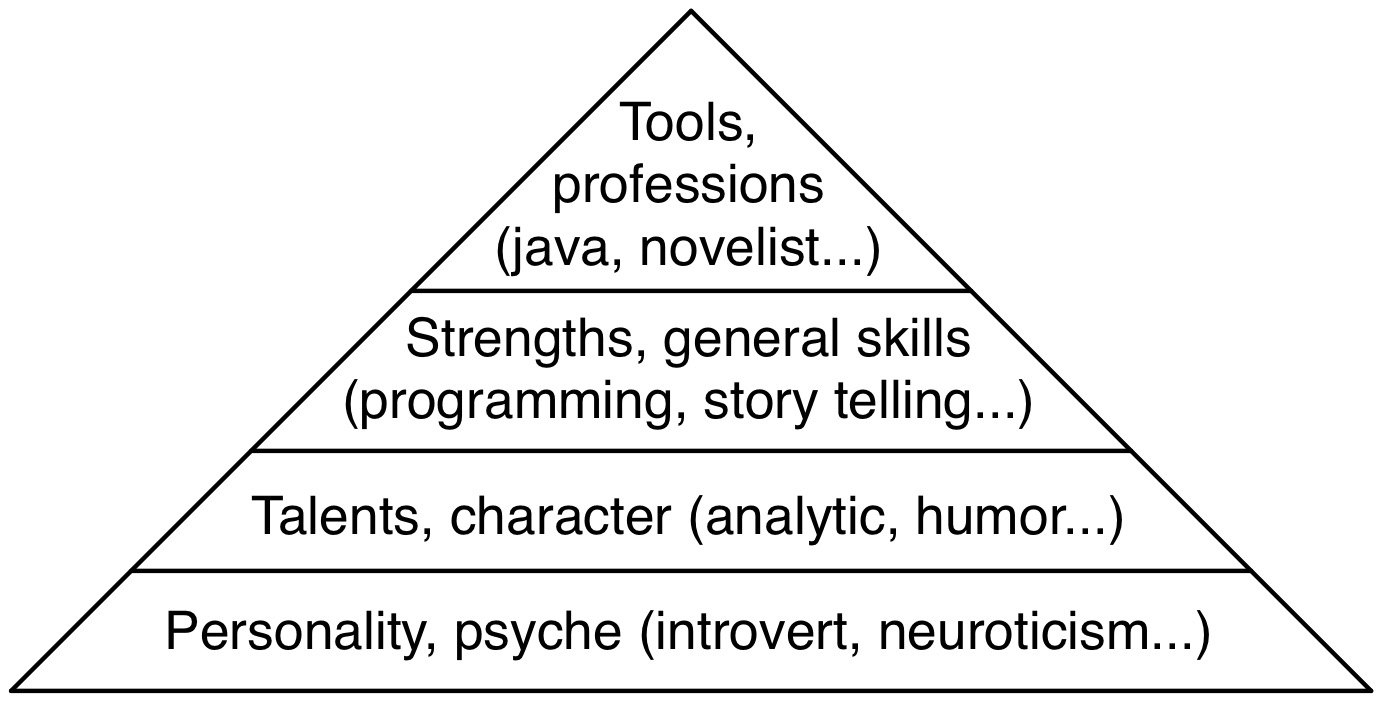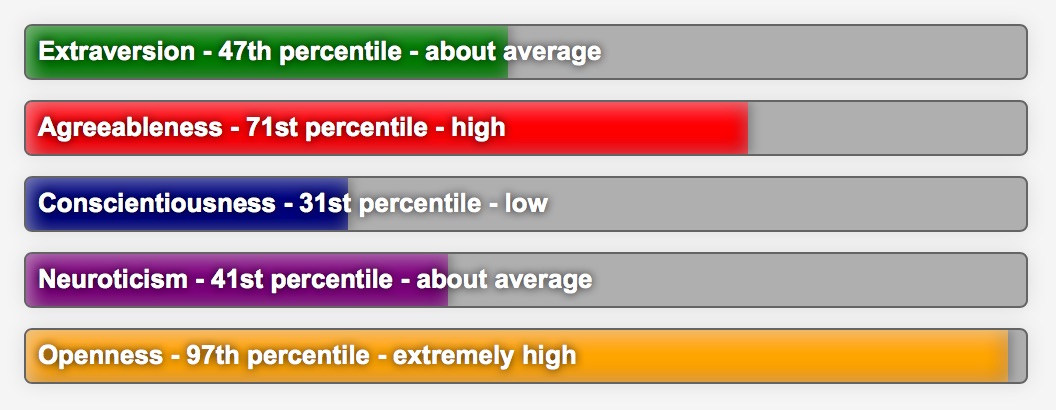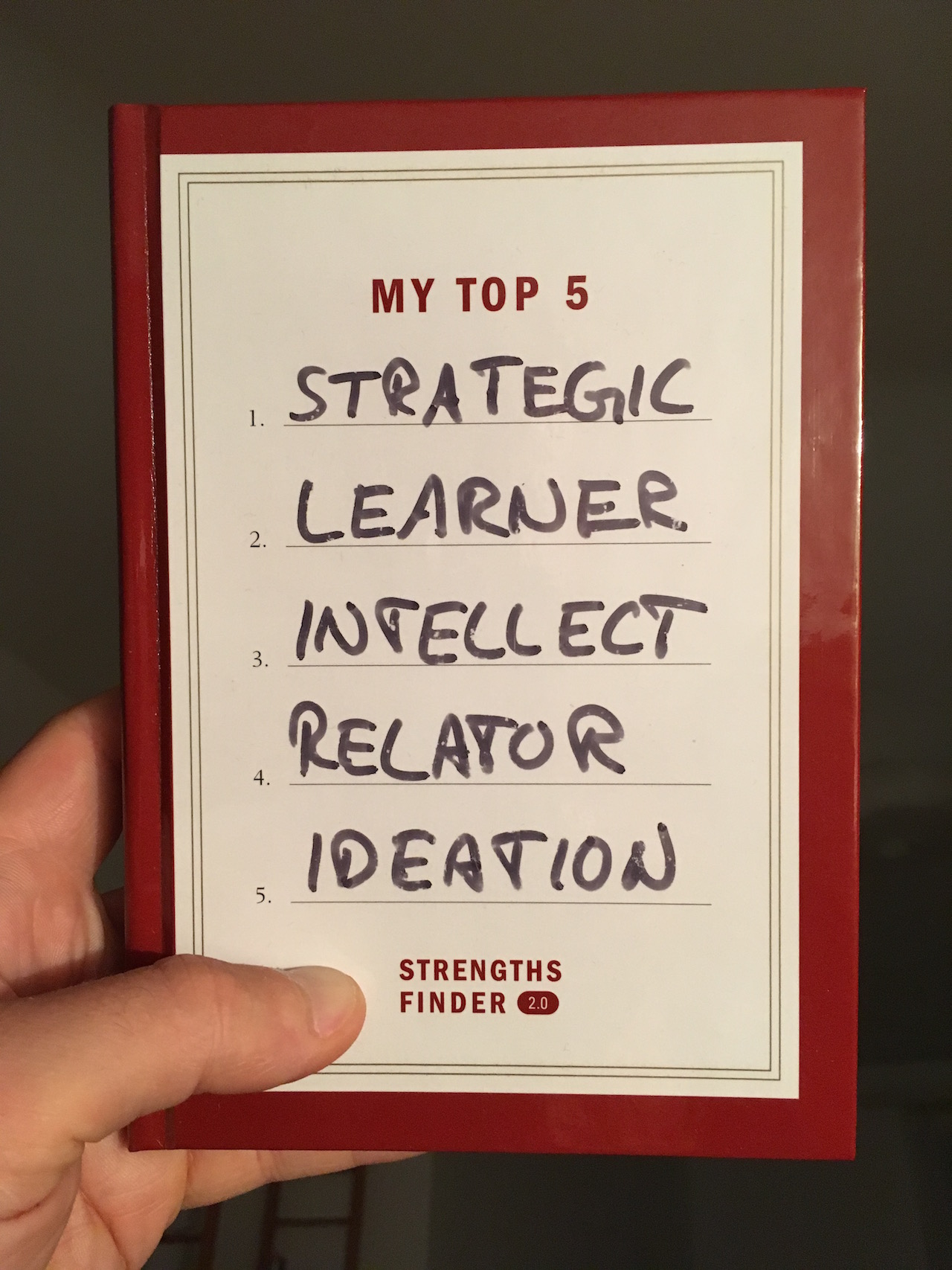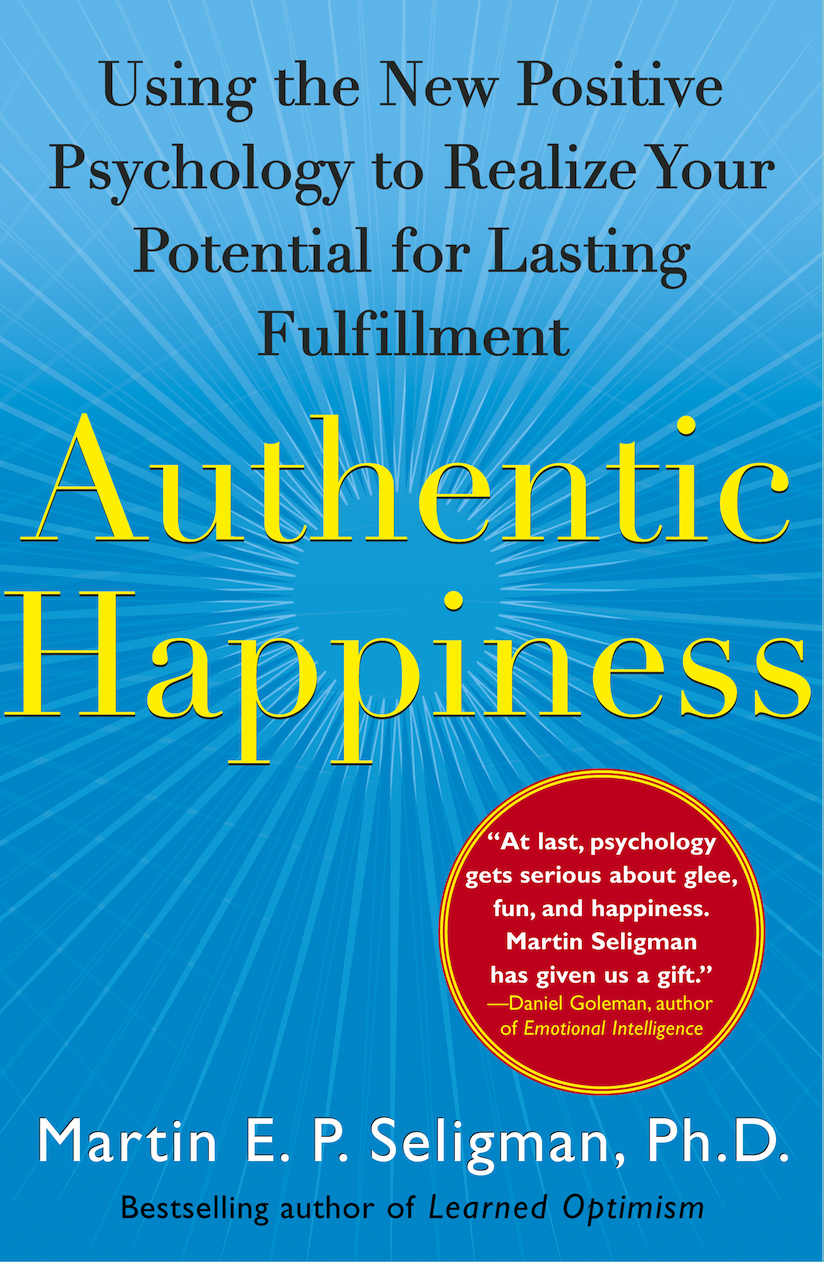
Disclaimer: My dear reader, in this article, I talk directly to YOU. I may even ask you to do something. However, my point of view merely reflects my own life experience. I invite you put it on like a shoe. See if it fits and take it for what it's worth.
Know Thyself
What is the very first step of self-development or personal growth? Taking action? Setting goals? Finding a life purpose? Explicating values? I say it all begins with knowing yourself.
You gotta know what you're dealing with before you start working on yourself. You want to choose a path that fits your personality and allows you to actualize everything you bring to the table.
Until here, that's all kind of obvious, right? Well, some of you will cringe as soon as we introduce a weirdly magical term: Talents.
I guess some people in the self-development scene would like to think that they don't have any fixed predispositions and can change everything about them. I don't believe that for one second.
If you can't think in terms of talents, you can't learn anything about your own talents, which means you can't really leverage your potential. In the following, you'll learn ...
- What talents are and how they make a difference
- Why you might not know your own talents
- What beliefs might prevent you from leveraging your talents
- How you can objectively identify your talents by yourself
- Which personality tests help identifying talents and traits
1. How Strength Focus Works
So let's clarify what we're talking about. Four amazing books inspired this article. Together they provide a nice frame of reference:
- Stephen R. Covey - The 7 Habits of Highly Effective People
- Peter F. Drucker - Managing Oneself
- Marcus Buckingham, Donald O. Clifton - Now, Discover Your Strengths
- Martin E.P. Seligman - Authentic Happiness
Self-Awareness: Start Where You Are
Covey's 7 step framework starts with what he calls "proactivity" which involves knowing where you are, i.e. who you are:
"We call it 'self-awareness' or the ability to think about your very thought process. This is the reason why man has dominion over all things in the world and why he can make significant advances from generation to generation."
Because talent analysis focuses on the centre of influence, fosters self-awareness and provides differentiated information about individual proactivity, it corresponds to Step 1 in Covey’s framework.
Self-Actualization: Leverage What You Are
Self-awareness includes awareness of what you're really good at compared to other people. Buckingham & Clifton's book takes this a step further and explains why and how you should consciously focus on your personal strengths. The book is based on solid research and an enormous data set.

Buckingham & Clifton's work builds upon 3 basic assumptions. They may seem trivial. But most of the criticism the authors receive roots in a rejection or misunderstanding of their assumptions. Only as far as you understand and accept them, can you benefit from strength focus. So let's have a look at these assumptions:
- Talents hardly change anymore after you've become an adult. We're talking about few basic talent themes. These are only slighly more concrete (differentiated) than the Big Five, which are known as being stable from age 30.
- Strengths that build upon talents have the biggest potential for growth. We understand talent as a multiplier of learning effort: Talent × Invested Time = Strength. Of course, you can also significantly improve those skills which your talents don't support much. But the learning process would be slower and more frustrating there.
- To live a fulfilled life, you must live in accordance with your own personality, regardless of whether that personality came from nature or nurture. That's why it is so crucial that you can apply your talents in whatever you do everyday. So your job can never just be your job. What work you choose and how you approach it makes a huge difference for your well being and is the core challenge of lifestyle design.
The Hierarchy of Haves
While Maslow's Hierarchy of Needs describes levels of what we want, I suggest there's also a Hierarchy of Haves which describes the capabilities we use to get what we want: Deeply ingrained personality traits are the basis for talents which support strengths that help you excel at specific tools or professions:

The higher up in the hierarchy the easier can you change that capability. You can't change your talents much as an adult, but you can still steer how you develop strengths and easily catch up on new tools and job roles. The basis for those decisions is knowing you're talents so you can get the most out of your strength development.
In summary: Talents are abstract personality traits that correspond to areas of great potential for personal development, specialisation, high performance and fulfilment. They root in your personality and psyche and they are quite stable over time. Strengths are specific desirable abilities that can be trained. The level of a strength is a product of practice and underlying contributing talents.
2. Why You Might Not Know Your Talents
The enormous importance of actualizing talents is unquestionable. The Parable of the Talents (Matthew 25:14–30) suggests we should capitalize on what is given to us. In the parable, "talent" refers to a measurement unit of gold. Amazing how the meanings of "talent" and "gift" have expanded!
Your potential is given to you by a higher power. It is a gift. You can't know the purpose of that gift. You can only be grateful and put it into action. This down-to-earth approach to the meaning of life is deeply ingrained in our culture. But few people consciously follow it. Here are the 4 main reasons for why people don't make the most of their talents:
- Beliefs set limits: Part of our cultural heritage is the belief that, in order to improve a system, you have to eradicate its weak points. The metaphor "A chain is as strong as its weakest link" seems obvious, and for technical systems it is often true.
- Self-awareness is a paradox: How can the self know itself? That sounds logically impossible. And indeed, we all tend to have a distorted picture of ourselves and cannot clearly see the relative degrees to which our talents have developed. We pursue goals that aren't our own. We don't value our unique skills because they make it feel effortless. And yet, we constantly overestimate what we can do, as social psychology has shown.
- Self-awareness hurts: All-rounders in particular have a hard time facing the reality of unequal talents. You must be able to accept that some of your talents are weaker than others and that you can't change some aspects of your self, just as you can't decide to grow a third ear.
- Letting go hurts: To use your strongest talents, you must say goodbye to all the other lifes you could live, the ones that build on talents which are just strong but not your strongest.
3. Two Beliefs that Hold Your Talents Hostage
It's a cliche and it's true: Inaccurate beliefs can totally sabotage your life and prevent you from being yourself. You will absolutely waste your talents if you never deal with conflicting beliefs that you possibly hold subconsciously. So let's look at the two most likely reservations you might have about strength focus.
"My Weaknesses Limit What I can Achieve"
Sure, you want to leverage those of your talents that compare best against other people. But what if you also secretely think that your weakest talents limit you anyway and that you should better work on them to avoid embarrassing yourself?
Let's have another look at the metaphor of the weakest link. In the context of traditional medicine, we might apply that metaphor to the human body: We are "healthy" when all our bodily functions do their job. If one organ fails, we intervene and bring it back to a "normal" i.e. average state. In that reductive view, we are as healthy as our least healthy organ.
So the "weakest link model" kind of works but it doesn't apply to what strength focus is about. It's not disease management but bio hacking. It's not about being average but about being everything you can be.
If one strength is lacking, you can use others. But if no strength is really pronounced because you haven't aligned your strength and skill development with your talents, you can't shine or go into depth anywhere. Or look at it from the 80/20 angle: If you don't consciously build your skills on your talents, it'll take you much longer to develop the same skill level.
So take a deep look at who you are, discover what works well, build on that, empower yourself with that, apply your strengths to more diverse tasks and thereby become who you're meant to be.
"Focussing on Strengths Limits My Self-Expression"
Knowing your talents and initiating growth through your strengths does not prevent you at all from being an awesome all-rounder. That would just be another limiting belief.
Focussing on strengths is not specialization on certain tasks and does not restrict what you do, much less what you achieve. You can apply each strength to all kinds of tasks and goals. But utilizing your talents with such effectiveness requires you to know them.
In fact, the main benefit of knowing your talents is that you can rethink and reshape the work you already do to align it with the way your mind and body literally "work".
Specializing on a job or role might help the economy or the system which defines that role. It doesn't necessarily help you. On the other hand, specializing on your strongest talents empowers yourself. It means you leverage your potential intelligently for whatever you wanna do.
4. 12 Questions to Find Your Talents and Life Purpose
I mentioned why self-awareness is paradox and hurtful. You can't fully step out of yourself and compare yourself objectively. However, positive psychology and the self-development genre offer some questions you can ask yourself to objectively narrow down what you're good at and what your life purpose is.
I synthesized a list of questions from the most powerful ones I found. If you take just one thing away from this article, it should be this list. I warmly recommend that you print it out and work with it:
Questionaire to Identify Your Talents, Strengths and Life Purpose
- Quick learning: In which common learning processes do I skip steps?
- Energy sources: Which activities energize me? When do I enter a flow state?
- Longings: What are recurring themes in my life? What pulls me in and what do I attract?
- Spontaneous decisions: How do I actually decide in day to day life without time to think?
- What did I want to do when I was 14 years old?
- What have strangers complimented me most on as a child?
- What did I grow up around? What strengths did my parents represent?
- What have I been doing in the last 10 years?
- What can I talk about effortlessly? Listening to myself, what subjects make me come alive?
- If I had all the money, love, physical and mental fitness I want, what would I do all day?
- What do I spend my money on beyond existential needs?
- What do my heroes and mentors do? What do I love about them?
(1-4) Buckingham & Clifton discuss 4 indicators that can reveal your strongest talents. They call them the "traces" of talents.
(5-9) Tai Lopez suggests 5 questions (also see here and here) that show where your strengths are. He also wants you to identify the common themes, skills and practices. What is the intersection of your 5 answers?
(10-12) I'm not sure where I picked these three up. But I'm convinced they are straight-forward ways to find out your true inclinations.
5. How to Quantify your Super Powers
Personality
Personality tests are only corny if you don't use them wisely. Your IQ and personality type can give you a good idea of where your areas of growth are. At least these classifications will make you think. If you disagree with a type description, that means you're reminded of what you already know about yourself in terms of personality type.
IQ testing is a delicate matter. Don't do free online tests here. Only a registered psychologist can test you with a real IQ test that is standardized for your population. Mensa regularly conducts official IQ tests for relatively small fees. Maybe you find one in your area.
Compared to IQ testing, personality testing is more fuzzy anyway, so go and experiment. I recommend doing several free tests and averaging their results. Free MBTI tests are here, here, here and here. Free Big Five tests are here, here, here and here.

I did these kind of tests about a decade ago, so my real indicators might have changed a bit. The one Big Five test I did today (picture above) suggests I've become less neurotic, more extraverted and more agreeable. But to validate that result, I'd need to take several tests, just as I did back then.
Productive Talents
The first research question of Buckingham and Clifton was, which talents exist at all. The Gallup Institute interviewed 2 million people to answer that. The interviews have been analyzed with regards to talents, life satisfaction and success. In that sense, we understand them as "productive talents".
Using factor analysis, they projected the talents that correlate with satisfaction and success onto 34 talent dimensions. These dimensions are relatively abstract. One dimension cannot be captured in a single defining term. Instead, it can only be described with texts and typical quotes of people who have this talent.
The benefit of this approach is that the talents they identified are of equal degrees of abstraction and relevance and they're maximally independent (really distinct). To put it simply: These talent dimensions are more systematic and closer to reality than our common language. Thereby they provide a vocabulary with which we can think about talents more rationally.
You can measure the 34 talents for yourself with StrengthsFinder 2.0. The quality of the results depends on the quality of your answers. You should answer honestly and spontaneously. These were my top five:

I was surprised to be a strategist, let alone as my number one talent. After reading "Now, Discover Your Strengths", I had predicted the other four of my top five talents. Along with my test results came a detailed report on how to apply my talents, which was a really interesting read.
Character Talents
The VIA IS lists 24 "character strengths". Martin E.P. Seligman, one of the fathers of positive psychology, presents the ideas behind this classification in his book Authentic Happiness.

Although these traits are labelled "strengths", we count them as "character talents" in the Hierarchy of Haves that we discussed above. In contrast to strengths, these character talents cannot be trained as well and are not applied to specific tasks. They count as talents because they are quite stable and general. Their main role is that you identify them so you can build upon- or work around them. These were my top 5:
- Creativity, ingenuity, and originality
- Love of learning
- Judgment, critical thinking, and open-mindedness
- Curiosity and interest in the world
- Perspective (wisdom)
Oddly enough, these are exactly the traits ”that involve the acquisition and use of knowledge”. My character seem to be unbalanced or specialised, which is something the StrengthsFinder 2.0 also hinted at. But then again, I did the test long long ago.
Character talents differ from productive talents in two ways:
- They are less a means to an end and more a value in themselves. Good character traits are universally valued and directly induce happiness and meaning. They broadly effect many aspects of life.
- They can be trained a bit better since some of them respond well to meditation, for example: gratitude, optimism, loving kindness, compassion and self-regulation.
You also have five ”signature weaknesses”, character traits that scored lowest. Have an eye on them when you're in the trenches executing your process, so that they don't become handicaps. These were my weakest character traits:
- Caution, prudence, and discretion
- Hope, optimism, and future-mindedness
- Self-control and self-regulation
- Gratitude
- Industry, diligence, and perseverance
Because character talents effect life more universally than productive talents, their lack should be managed less and compensated more. They seem to effect mental health and well-being more directly than productive talents.
Wrapping it Up
If you never analyze your talents and strengths, chances are you're missing out on some low hanging fruits. Chance are you'll never be all you can be. Talents are a multiplier for all your efforts. Often, you just need to adjust how you do something to leverage your full potential.
Confront the conflicting beliefs that possibly hold you back from embracing your strengths and use the presented questionaire and online tests to get an objective picture of your profile in terms of talents, strengths and personality.
Being aware of how your unique capabilities and inclinations effect your life, you will automatically make better decisions, and life will be easier in many ways. When you commit to a task, project or big goal, you will look for ways to put your strengths to work. Always ask yourself: Is there a way to achieve this result that is more aligned with how I function?
Building strengths and general skills takes time. Steer your skill development in a way that your talents and character traits support. Always have an eye on your least developed talents so you don't trip over them. Train character traits like gratitude and compassion if they are weak spots.
Start recognizing how good you are in certain areas and build your confidence with that. Trust in your superpowers, groom them and you will apply them in more and more ingenious ways, ultimately transcending their respective domains.
 Flowtoolz
Flowtoolz